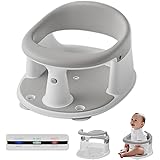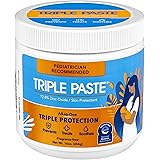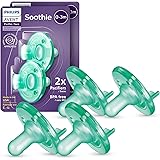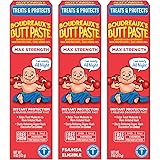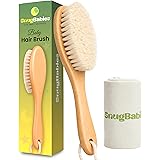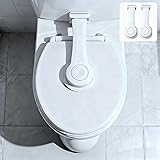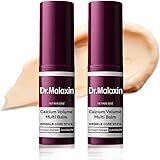Are you a new parent wondering about the best ways to care for your newborn’s delicate skin? The video above beautifully captures the precious moments of new parenthood, subtly reminding us that some everyday items are simply not suitable for our littlest ones. Maintaining impeccable newborn hygiene is paramount, yet choosing the right products can often feel overwhelming.
Indeed, a baby’s skin is remarkably different from an adult’s. It is thinner, more porous, and far more sensitive, making it susceptible to irritation from harsh chemicals or strong fragrances found in typical household products. Understanding these differences is the first step in creating a safe and healthy environment for your little angel.
Understanding Your Baby’s Delicate Skin
A newborn’s skin barrier is still developing, meaning it offers less protection against environmental irritants, allergens, and germs. This immature skin structure requires specific care to prevent dryness, rashes, and potential infections. Its pH level is also closer to neutral compared to an adult’s more acidic skin, which affects how it reacts to various cleansing agents.
Adult hygiene products, including detergents, soaps, and lotions, are formulated for mature skin. They often contain strong surfactants, potent perfumes, and dyes that can strip natural oils, disrupt the skin’s pH balance, and trigger allergic reactions in infants. This is why the choice of baby hygiene products becomes a critical decision for every parent.
The Crucial Role of Gentle Baby Products
The video aptly highlights that babies need products with a gentle touch that are simultaneously effective against germs. This balance is key when selecting items for your little one’s daily routine. Products specifically designed for infants are typically hypoallergenic, pH-balanced, and free from common irritants like parabens, phthalates, and harsh sulfates.
These specialized formulations are crafted to cleanse without stripping the skin of its essential moisture. For example, baby-specific detergents use mild surfactants that are tough on messes but rinse cleanly, leaving no residue that could irritate sensitive skin. Similarly, baby washes and shampoos contain very mild cleansers that protect the natural emollients of an infant’s scalp and body.
Choosing the Right Baby Hygiene Products
When curating your newborn hygiene kit, focus on products that prioritize safety and efficacy. Look for labels that clearly state “hypoallergenic,” “pediatrician-tested,” and “dermatologist-tested.” Such certifications offer a layer of assurance that the product has undergone rigorous testing for infant suitability.
Consider the ingredient list carefully. Simpler formulations are generally better. Avoid products with a long list of unpronounceable chemicals or artificial fragrances. Natural scents derived from essential oils can sometimes be too potent for a newborn, so fragrance-free options are often preferred, especially for very sensitive skin.
Essential Newborn Hygiene Practices
Beyond selecting the right products, establishing a consistent and gentle hygiene routine is vital for your baby’s health and comfort. A well-executed routine minimizes exposure to germs and allergens, promoting healthy skin development. However, over-cleansing can also be detrimental, so moderation is important.
Bathing Your Little One
While daily baths are not necessary for newborns, a gentle sponge bath every two or three days is usually sufficient until the umbilical cord stump falls off. Once cleared, full baths can be introduced. Use lukewarm water and a very small amount of baby wash. Ensure the bathing environment is warm to prevent your baby from getting cold.
The bath should be a quick and soothing experience. Prolonged immersion can lead to dry skin. Gently pat your baby dry immediately after the bath, paying close attention to skin folds, and apply a baby-specific moisturizer to lock in hydration. This simple step can significantly improve the skin’s barrier function.
Diaper Changing and Care
Diaper changes are frequent, making proper diaper hygiene one of the most critical aspects of newborn care. Always clean the diaper area thoroughly with soft, fragrance-free baby wipes or a soft cloth moistened with warm water. Wipe from front to back to prevent the spread of bacteria, especially for girls.
Allow the skin to air dry for a moment before applying a thin layer of diaper rash cream or ointment, particularly if your baby is prone to irritation. This creates a protective barrier against moisture and irritants. Prompt diaper changes prevent prolonged contact with urine and feces, which are major culprits behind diaper rash.
Laundry for Delicate Skin
Just as direct skin products need to be gentle, so do the products used on your baby’s clothing, bedding, and blankets. Adult laundry detergents often contain strong enzymes, brighteners, and fragrances that can linger in fabrics and cause skin irritation. These residual chemicals can easily transfer to your baby’s delicate skin.
Opt for a baby-specific laundry detergent, often labeled “free and clear,” which means it’s free of dyes and perfumes. These detergents are formulated to be extra mild and rinse clean from fabrics. Washing new baby clothes before their first use is also a good practice to remove any manufacturing residues.
Beyond Products: Creating a Clean Environment
Newborn hygiene extends beyond personal care products to the baby’s immediate surroundings. Regularly clean and disinfect surfaces your baby frequently touches, such as changing tables, play mats, and toys. Use baby-safe, non-toxic cleaning agents or simple soap and water.
Handwashing is perhaps the most fundamental aspect of protecting your newborn from germs. Anyone who handles the baby should wash their hands thoroughly with soap and water or use an alcohol-based hand sanitizer. This proactive measure significantly reduces the transmission of bacteria and viruses, reinforcing the importance of newborn hygiene.
Your Little Angel’s Hygiene: Questions Answered
Why is a newborn’s skin different from an adult’s?
A newborn’s skin is thinner, more sensitive, and its protective barrier is still developing. This makes it more prone to irritation and infections compared to adult skin.
Why shouldn’t I use regular adult hygiene products on my baby?
Adult products often contain strong chemicals, fragrances, and dyes that can irritate a baby’s delicate skin, strip its natural oils, and disrupt its pH balance. Baby-specific products are formulated to be much gentler and safer.
What features should I look for when choosing baby hygiene products?
Look for products labeled ‘hypoallergenic,’ ‘pediatrician-tested,’ and ‘dermatologist-tested.’ They should also be pH-balanced and free from common irritants like parabens, phthalates, and harsh sulfates.
How often should I bathe my newborn baby?
Daily baths are not necessary for newborns. A gentle sponge bath every two or three days is usually sufficient until the umbilical cord stump falls off.
Why is handwashing so important when caring for a newborn?
Handwashing is fundamental because it significantly reduces the transmission of bacteria and viruses to your newborn. Anyone handling the baby should wash their hands thoroughly to protect them from germs.


